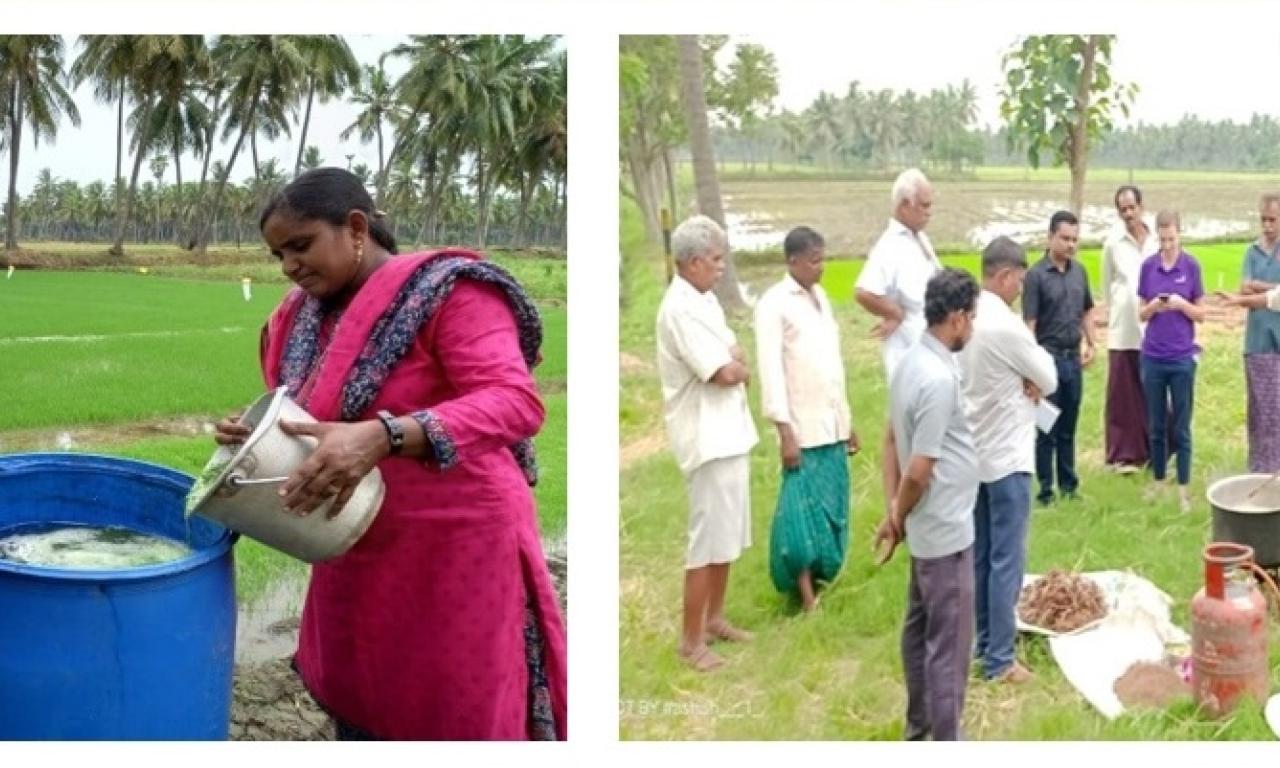
Agroecological practices can effectively address the global challenges of food security, biodiversity loss, climate change, and rural livelihoods. In India, selected practices are being tested and evaluated with food system actors through the Agricultural Living Landscapes initiative established by the Agroecology Initiative team and its partners in two states: Andhra Pradesh and Madhya Pradesh, located in southern and central India, respectively.
Given the diverse motivations of stakeholders to engage with these practices and to accelerate adaptation, evaluating agroecological transitions—especially those applied at scales larger than the farm level—is imperative. To this end, partners are currently developing an Artificial Intelligence / Machine Learning (AI/ML) based decision support system for stakeholders in aquatic food production. This system will consider various dimensions necessary to achieve higher levels of social and ecological sustainability, including economic returns, soil health preservation, ecosystem integrity, and stability in natural resource utilization.
To facilitate this process, WorldFish—one of our primary collaborators in India—has signed a Memorandum of Understanding (MoU) with the University of Engineering and Management in Kolkata, India. The decision-support tool will assist relevant stakeholders in their agroecological transitions, with the first component focusing on natural method-based integrated rice-fish farming techniques in collaboration with the Andhra Pradesh Community Managed Natural Farming (APCNF) initiative.
